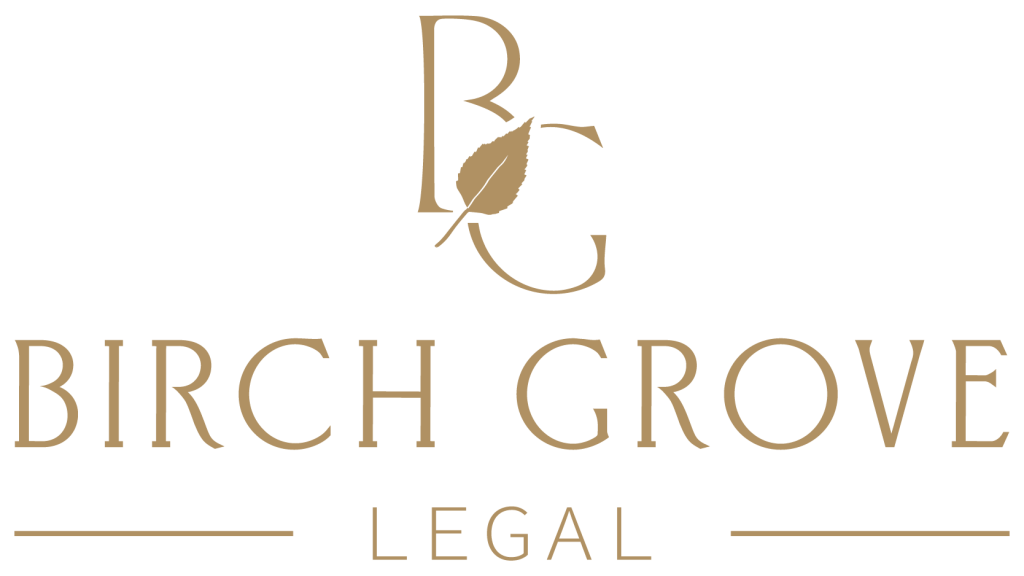When you start building savings, property, or a business, it’s natural to think about how it will support your family. But life comes with risks, lawsuits, debt, unexpected events, and the possibility of assets being divided in ways you didn’t intend.
A family trust helps protect what you’ve worked for and makes sure it goes exactly where you want it to go. It keeps things organized, private, and harder for outside claims to interfere.
I’ve worked with Colorado families to create trusts that safeguard what they’ve built and provide stability over time. In this guide, we’ll look at the advantages of a family trust can bring and how it works.
Defining Family Trusts: Legal Foundations and Roles

A family trust is a legal arrangement that holds and manages assets for the benefit of selected family members. The person who sets it up is called the settlor.
The trust is managed by a trustee. According to The Ohio State University, the trustee is legally required to manage the trust assets for the benefit of the beneficiaries as outlined in the trust document. The people who receive the benefit of the trust are the beneficiaries.
Unlike a will, a family trust takes effect as soon as it is created and funded. That means assets are transferred into the trust during your lifetime, not only after death.
Trusts can be revocable or irrevocable. A revocable trust can be changed as life circumstances shift. An irrevocable trust is more permanent, offering stronger protection but less flexibility.
The trust agreement outlines how assets should be handled, who makes decisions also known as an attorney of power, and when distributions should happen. This structure creates clarity and control over how your wealth transitions now and in the future.
Asset Protection Advantages of a Family Trust

A family trust helps protect your assets from financial risks by separating ownership from any one individual. When assets are held in the trust, they are generally harder for creditors, lawsuits, or outside claims to reach.
A family trust can help protect against:
- Creditor and lawsuit exposure: The trust, not the individual, legally owns the assets, creating a layer of protection.
- Business and professional liability: Helpful for business owners and those in high-liability fields, like doctors or regulated fields in medicine, who want added security.
- Divorce-related claims: Depending on how the trust is structured and when it is funded, certain assets can remain separate from marital property.
- Legal disputes and financial instability: Trust-held assets are harder to seize or tie up when unexpected issues arise.
How Family Trusts Support Tax Planning

A family trust can also be a useful tax planning tool. When the trust owns income-producing assets, the trustee can distribute that income to beneficiaries who may be in lower tax brackets. This can help reduce the overall tax burden in the family.
Trusts may also be structured to manage capital gains more efficiently or to pass wealth across generations while minimizing certain taxes. The exact benefit depends on how the trust is drafted and how distributions are handled.
However, tax rules for trusts change over time, and trust income can move into higher tax brackets quickly if not managed well.
Probate Avoidance and Smoother Wealth Transfer

One of the most practical advantages of a family trust is avoiding probate. Probate is the court process of settling an estate after someone passes. The American Bar Association explains that probate is court-supervised, which can add time, expense, and public disclosure to the estate process.
When assets are placed into a trust, they are transferred according to the trust instructions, without court involvement. This makes the process faster, more private, and easier for the people handling your affairs.
Avoiding probate can also reduce legal fees, prevent delays in accessing important accounts, and help keep sensitive financial details confidential. For families with real estate, business interests, or multiple heirs, this clarity is especially valuable.
A family trust keeps the transition smooth during a time when simplicity matters most.
Control and Conditional Distributions

A family trust gives you control over how and when assets are distributed. Instead of assets passing all at once, you can set clear guidelines in the trust agreement. This helps protect wealth from being spent too quickly or handled in ways you wouldn’t have intended.
You can choose to release funds based on timing, milestones, or needs, such as reaching a certain age, completing education, or demonstrating financial responsibility. This structure supports beneficiaries while still protecting the assets themselves.
Many family trusts also include spendthrift provisions, which help shield the assets from a beneficiary’s creditors. The trustee manages the trust in the best interest of the beneficiaries, following the instructions you’ve put in place.
Flexibility in Trust Structures

A family trust can be set up to match the level of control and protection you want.
Choose a revocable trust when:
- You want to keep control of the assets during your lifetime.
- You expect circumstances or family needs to change over time.
- Flexibility and the ability to make updates matter most.
Choose an irrevocable trust when:
- Your priority is stronger asset protection from lawsuits or creditors.
- You want potential tax advantages or long-term estate planning stability.
- You are comfortable giving up control to protect the family asset for the future.
An estate planning attorney can help determine which approach aligns best with your goals and risk tolerance.
Business Succession Planning Benefits

For families who own a business, a family trust can help transition ownership smoothly when it’s time for leadership to change. The trust can outline who takes on decision-making roles and how ownership interests are passed down, reducing confusion or conflict.
A trust can also separate voting control from financial benefit. This means the person leading the business can continue guiding operations, while ownership value is gradually transferred to the next generation. It supports stability, continuity, and a clear path forward for the business.
Importance of Choosing the Right Trustee and Advisors

A trust is only as strong as the people who manage it. The trustee must act in the best interests of the beneficiaries, make sound financial decisions, and follow the instructions in the trust agreement.
You can choose different types of trustees depending on your needs:
- Family member: Familiar with family dynamics but may feel pressure or emotional involvement.
- Trusted individual: Offers neutrality and personal understanding, but must be financially responsible.
- Professional trustee or trust company: Provides experience, oversight, and consistency, though this option includes ongoing fees.
Working with an estate planning or trust attorney or financial advisor ensures the trust stays compliant, properly funded, and aligned with your goals over time. Regular reviews help keep everything accurate as life circumstances and tax laws change.
Common Challenges and How to Avoid Them

A family trust works best when it’s set up thoughtfully and maintained over time. Common issues include:
- Not funding the trust: If assets aren’t retitled into the trust, probate may still be required even if the documents are in place.
- Outdated or unclear trust language: Family needs change. Without periodic reviews, instructions can become vague or lead to conflict.
- Administrative and tax responsibilities: Trusts require recordkeeping, tax filings, and trustee oversight, which can become overwhelming without support.
- Choosing the wrong trustee: A trustee should be organized, impartial, and able to manage financial responsibility, not everyone is a good fit.
- Beneficiary designations not matching the trust plan: Retirement accounts and POD/TOD accounts must be updated so all inheritance paths work together.
Keeping the trust current and properly funded ensures it continues to protect assets and support your family long-term.
Jurisdiction Considerations and Long-Term Performance

Where your trust is established influences how well it protects assets, how private it remains, and how it’s taxed. Colorado has strong trust laws, but some families consider states like South Dakota or Nevada for added privacy and longer-lasting asset protection features.
If you have property, business interests, or beneficiaries in more than one state, jurisdiction becomes even more important. Different states have different trust rules, and choosing the right location can impact long-term control and how easily the trust can be managed.
How to Set Up a Family Trust in Colorado

If you’re now considering a family trust, these steps outline how to put it in place smoothly.
- Define your goals. Decide what you want the trust to accomplish, asset protection, privacy, smoother inheritance, or long-term planning.
- Consult an estate planning attorney (and advisor if needed). They’ll help you choose between a revocable or irrevocable trust and draft the trust agreement.
- Choose the trustee. Select a family member, trusted individual, or professional fiduciary based on the level of responsibility and neutrality you want.
- Fund the trust. Transfer real estate, bank accounts, investments, and other assets into the trust’s name. Without this step, the trust won’t protect assets.
- Review and update as life changes. Revisit the trust after major events to keep it aligned with your intentions and current needs.
- Communicate when appropriate. Clarity with beneficiaries can prevent confusion or disputes later.
The Value of a Family Trust
The advantages of a family trust come down to protection, clarity, and control. A trust can safeguard your assets from legal risks, simplify tax planning, avoid probate delays, and guide how wealth is used across generations.
While trusts require thoughtful setup and ongoing management, the long-term benefits can be substantial. With the right structure, a trust becomes more than a legal document, it becomes a plan that supports your family’s financial stability and future.
If you’d like help creating a trust that aligns with your goals and offers clear, practical protection, contact us today to get started.
Frequently Asked Questions
What is a trust agreement in estate planning?
A trust agreement is the legal document that outlines how your family asset is managed, who the beneficiaries are, and how distributions happen. It defines the trust structure and the trustee’s responsibilities. A well-written trust agreement helps protect assets and keeps your wealth aligned with your intentions now and in the future.
What are the main trust advantages for families?
Key trust advantages include the ability to protect assets from lawsuits or disputes, guide how wealth is distributed, and avoid probate delays. A family trust also supports more personalized estate planning, allowing you to set conditions, timelines, or financial support rules that match your family’s needs.
How does income splitting work in a family trust?
Income splitting allows trust income to be distributed among beneficiaries who may be in lower tax brackets. This can reduce the overall tax burden and keep more wealth in the family. However, the trustee must follow IRS guidelines carefully to ensure the trust structure complies with current tax laws.
Can a family trust protect retirement savings?
Retirement accounts like IRAs and 401(k)s typically stay outside the trust, but beneficiary designations can be coordinated with the trust agreement. While the trust itself may not hold the retirement account directly, the overall estate planning strategy can help protect assets and ensure a structured retirement distribution to family members.
Do I need professional services to set up a family trust?
Working with estate planning services can prevent costly mistakes, especially around funding the trust and coordinating beneficiary forms. A professional estate planning lawyer ensures the trust structure is legally sound, aligns with tax planning goals, and provides long-term clarity in how your family asset is protected and transferred.





0 Comments